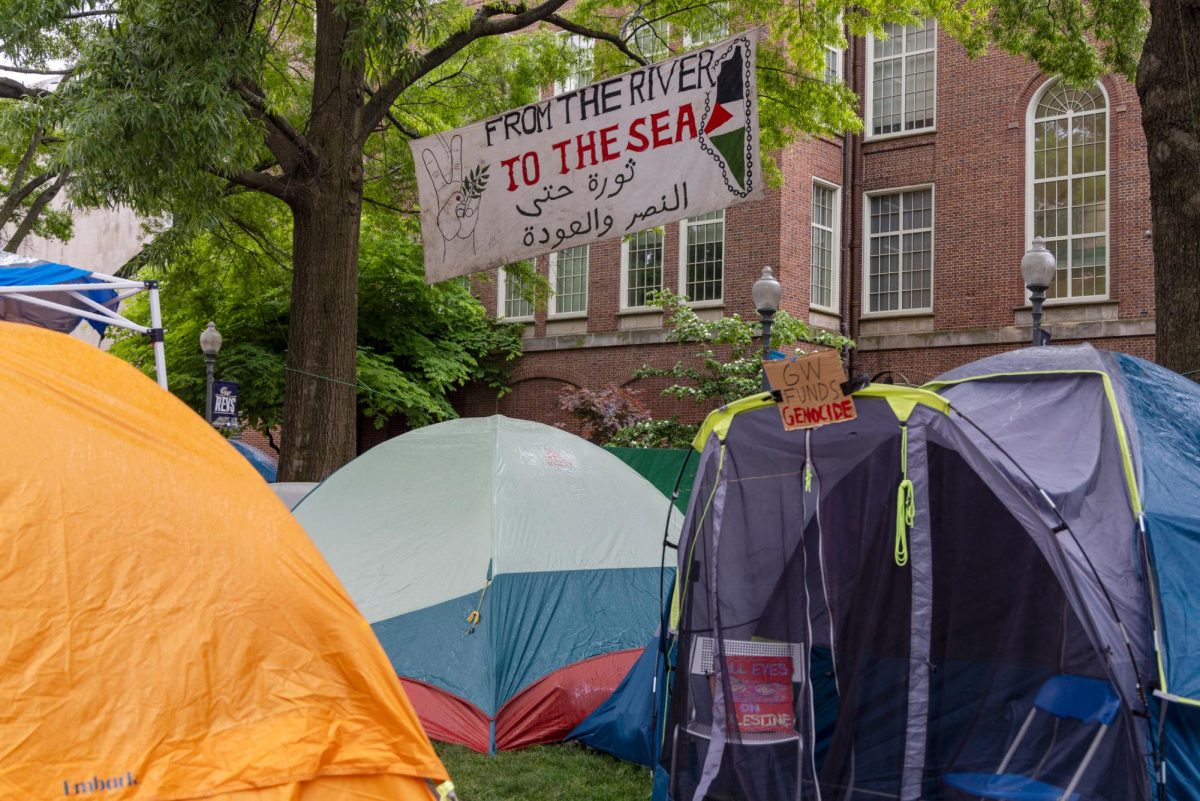A new student group is pushing the University to create a more welcoming environment for commuter students.
Sophomore Sofia Alpizar, who commutes to campus every day from Potomac, Md., is leading the new group – the GW Commuters Students Association – which officially formed two weeks ago. She said the organization will help to build what is currently a nonexistent community for GW’s commuter population and will advocate more commuter student representation on leadership organizations like the Student Association.
She said the organization will push to add resources like lounges in District House and the Marvin Center with refrigerators that would allow commuters to bring their lunches to campus. The group also wants to add personal lockers – so commuter students wouldn’t need to trek all of their belongings back and forth every day – and Metro stipends, which would fund students’ trips on the Metro each semester.
Gelman Library began offering personal storage lockers for rent on its fourth and fifth floors in 2016. That same year, the University rejected a proposed Metro program that would have given all students unlimited Metro rides for an added tuition fee.
“If I have extra time, I can’t just go back to my room. I have to find a space to hang out.”
Alpizar first came up with the idea for the organization when she met several other commuters during last year’s Freshman Day of Service, an annual day of volunteer work for first-year students. After realizing there are no decided funds or common spaces for housing-exempt students, and no student representatives for the commuter community, Alpizar said she decided it was time for change.
“I really think if we all work together, we’ll really increase awareness of our existence here,” she said.
The University allows students to avoid the three-year on-campus housing requirement if they can prove they live outside the Foggy Bottom area, but within a commutable distance of campus, according to GW Housing.
The group will reach out to student organizations and academic departments and design Facebook pages to advertise the group. The group is also pairing up with the admissions office in hopes of appearing on student-led panels during spring admissions days to show prospective students that commuters have a vocal presence on campus, Alpizar said.
The organization has also been using Fordham University, an urban school with a large commuter population in New York City, as a model for some of their requests. Fordham gives its commuter students a $2,000 MetroCard stipend and has lounges and activities for commuters on campus.
“I think it’s necessary for GW, being such an urban institution, to incorporate something similar and so we presented that model to the administration as well,” Alpizar said.
Sophomore Jacob Folvag commutes from Arlington, Va. and said his transportation costs come to about $5 for every day that he attends class. Folvag said as a commuter, he has nowhere to go to relax between classes.
“If I have extra time, I can’t just go back to my room,” he said. “I have to find a space to hang out.”
Thomas Germain, the assistant director of community support and leadership in the Center for Student Engagement, has been working as the group’s adviser to brainstorm potential locations for lockers and a commuter lounge, Alpizar said.
Germain said the CSE offered “support and guidance” to Alpizar as she made the first steps to form the organization last spring to help ensure the longevity of the club.
“CSE staff will continue to work with this new organization to gain a better understanding of the needs of this important population at GW and support these students in helping them find their place as part of the GW community,” he said in an email.
Abel Amare, a sophomore who commutes from Gaithersburg, Md. and serves as vice president of the organization, said he hopes GW will provide a “home” or “base” for commuters. He said the organization plans to host events like coffee time and study hours for commuters so that they can come together, talk and relax.
“It definitely makes it hard to hang out with people or get involved with stuff that’s going on on campus for sure.”
Amare said the organization is still struggling to figure out who the commuters are around campus because GW Housing cannot offer commuters’ names out of privacy concerns.
“The way you find out the person is a commuter is you talk to them,” he said. “And it’s not easy to talk to strangers to figure out. I’m not going to walk the downstairs and ask whether you are a commuter.”
Senior Rachael Helman, who commutes every day from Brown Hill, Va., said that becoming socially involved on campus can be particularly difficult for commuter students because many student groups require hefty time commitments and meet late at night.
“It definitely makes it hard to hang out with people or get involved with stuff that’s going on on campus for sure,” she said.





